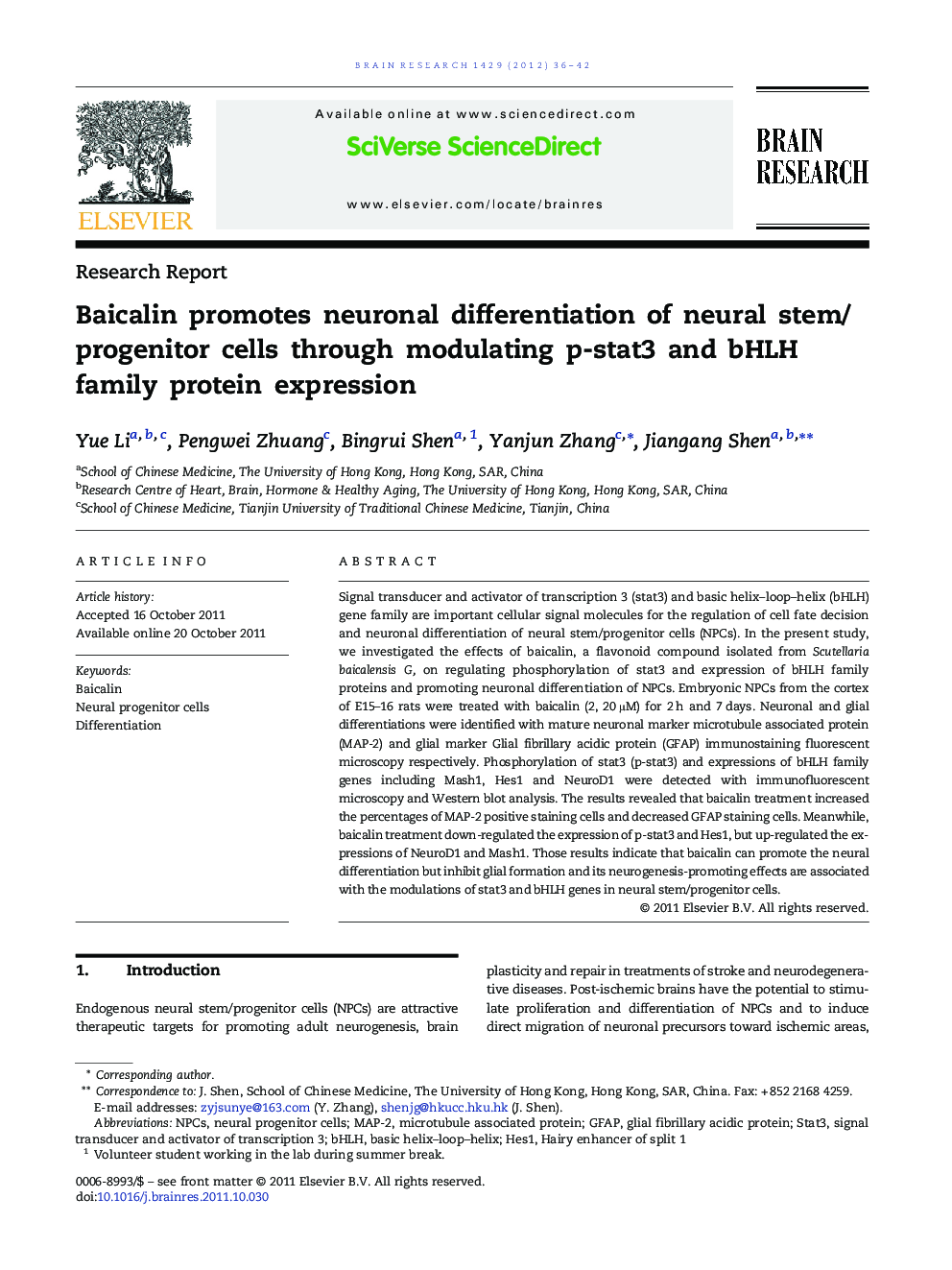| Article ID | Journal | Published Year | Pages | File Type |
|---|---|---|---|---|
| 6264650 | Brain Research | 2012 | 7 Pages |
Signal transducer and activator of transcription 3 (stat3) and basic helix-loop-helix (bHLH) gene family are important cellular signal molecules for the regulation of cell fate decision and neuronal differentiation of neural stem/progenitor cells (NPCs). In the present study, we investigated the effects of baicalin, a flavonoid compound isolated from Scutellaria baicalensis G, on regulating phosphorylation of stat3 and expression of bHLH family proteins and promoting neuronal differentiation of NPCs. Embryonic NPCs from the cortex of E15-16 rats were treated with baicalin (2, 20 μM) for 2 h and 7 days. Neuronal and glial differentiations were identified with mature neuronal marker microtubule associated protein (MAP-2) and glial marker Glial fibrillary acidic protein (GFAP) immunostaining fluorescent microscopy respectively. Phosphorylation of stat3 (p-stat3) and expressions of bHLH family genes including Mash1, Hes1 and NeuroD1 were detected with immunofluorescent microscopy and Western blot analysis. The results revealed that baicalin treatment increased the percentages of MAP-2 positive staining cells and decreased GFAP staining cells. Meanwhile, baicalin treatment down-regulated the expression of p-stat3 and Hes1, but up-regulated the expressions of NeuroD1 and Mash1. Those results indicate that baicalin can promote the neural differentiation but inhibit glial formation and its neurogenesis-promoting effects are associated with the modulations of stat3 and bHLH genes in neural stem/progenitor cells.
⺠Baicalin inhibits the expressions of p-stat3 and Hes1 in NPCs. ⺠Baicalin promotes the expressions of NeuroD1 and Mash1 in NPCs. ⺠Baicalin promotes neuronal differentiation but inhibits glial formation.
